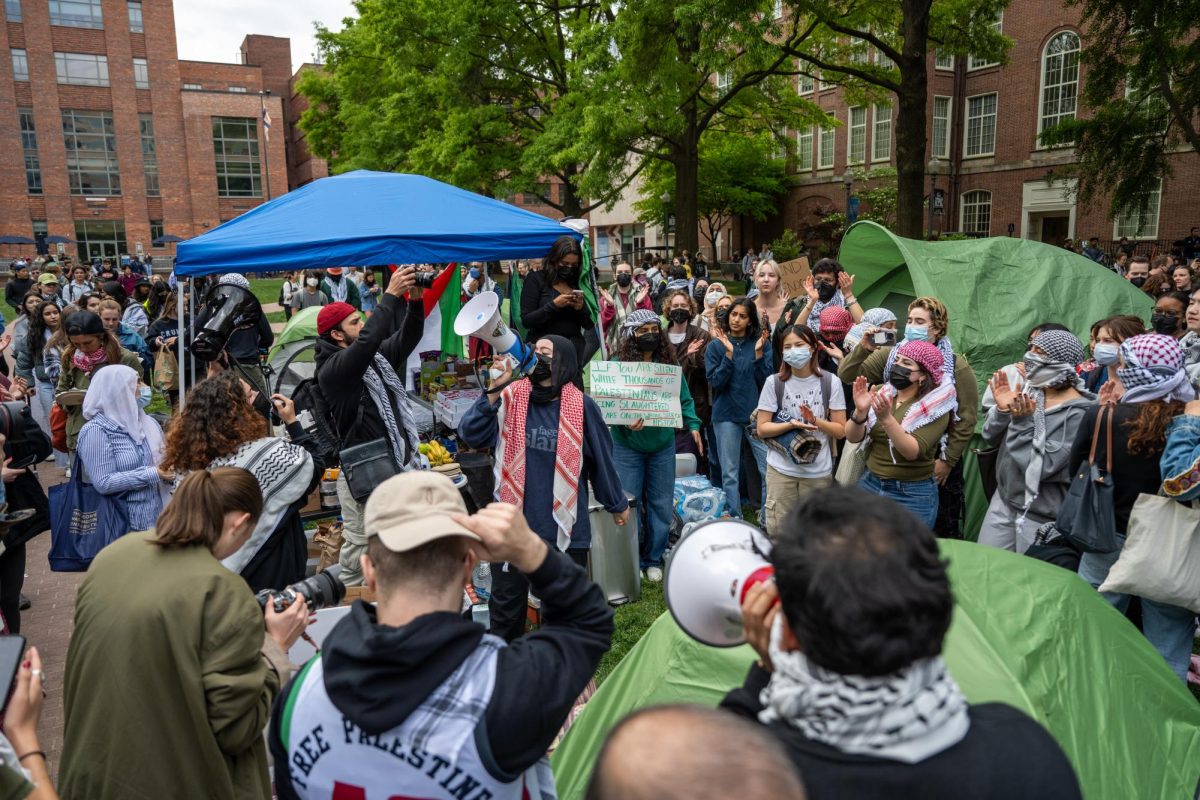The consultants from James Lee Witt Associates continue to study the issue of arming the University Police Department, and they have recently been holding focus groups with students on campus, a University official said this week.
University spokeswoman Tracy Schario said the consultants held a series of meetings in which students were asked multiple-choice questions. This was followed by a more open-ended session in which the students could give general feedback on the issue.
Student participants were selected based on the diversity they added to the focus group. Schario said the consultants aimed for a “cross-section” of the student body, including undergraduates, graduates, and commuters from a variety of backgrounds.
In addition to students, the consultants have also solicited input from faculty, administrators, members of UPD and “outside stakeholders.”
Schario said the University would not release the list of students who participated in the in the focus groups. She did not specify how many students had been interviewed or how many focus groups had been conducted.
Anyone affiliated with GW can also make their opinion known by writing to the consultants, said Schario, who did not know a specific e-mail address. Former Student Association President Nicole Capp said she contacted the consultants through a top administrator to support arming UPD officers.
“I support Chief Stafford and I wanted to express that to the University as a student,” Capp said.
At the Hatchet-SA debate in February, all seven SA presidential candidates expressed opposition to arming UPD. SA President-elect Julie Bindelglass said she expects to provide her opinions upon taking office, but had thus far not been asked by either the University or the consultants.
“It’s a decision that’s going to be made by experts,” she said, noting that the wide range of emergency services in the area made her feel safe. “My job is to make sure they’re listening to students.”
SA Executive Vice President and former presidential candidate Kyle Boyer said it “would have been nice to give my opinion,” but he did not see his participation as essential.
“I think student opinion is the least important factor in whatever decision they make,” he said.
Both Schario and Robert Chernak, senior vice president for Student and Academic Support Services, said the consultants do not have a timeline for completing their study in Foggy Bottom.
“This is a very complicated question we’re dealing with,” Chernak said. “There’s no need to rush to judgment.”
At the heart of the matter, Chernak said, is the question of how best to provide safety and security to the GW community.
“All other questions are sub-questions,” he said. “And there’s no easy answer to a single aspect of the study.”
Chernak also cautioned against making any hasty decisions in the wake of campus shootings at Virginia Tech and Northern Illinois University.
“Neither shooting had anything to do with whether the police force was armed,” he said.
While some people might either immediately dismiss the idea of arming UPD or support it unconditionally, Chernak said it remains to be seen what benefits and disadvantages an armed police force would have.
“When you read what has been published on the subject, you see that there’s no solid conclusion as to the utility of an armed campus force,” he said.
The discussion of whether to arm UPD officers was formally initiated this fall, after UPD Chief Dolores Stafford co-authored a report last spring which endorsed arming campus police nationwide.






